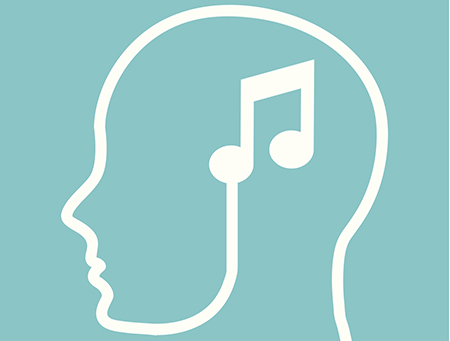文藝板塊
Johnson
約翰遜欄目
They can feel it all over
他們能感知到一切
The echaes between music and language are revealing about both
從音樂和語言的差異中揭示彼此
One of the liveliest debates in lingistics is over whether all languages share fundamental properties. If so, perhaps language is a universal feature of evolution. To find out, scholars have looked to other universal features, and one in particular: no society on Earth lacks music. The comparison illuminates what is special about both.
是否所有的語言都具有相同的基本屬性是語言學中最激烈的辯論之一。如果是這樣的話,那么也許語言是進化的普遍特征。為了找到答案,學者們研究了其他的普遍特征,其中特別關注音樂:因為在地球上,沒有哪個社會是缺少音樂的。通過對比,研究者們也發現了兩者的特殊性。
Music and language seem intimately linked, but how? Did language start with song, as Darwin believed? or is music "auditory cheesecake" that developed from language and other useful faculties, as Steven Pinker, a Harvard psychologist, has said? Is music itself a language, as Stevie wonder intoned? Might the two be fundamentally the same?
音樂和語言似乎有著緊密的聯系,但究竟是何種聯系呢?就像達爾文所想的那樣,語言起源于音樂嗎?還是如哈佛大學心理學家史蒂文·平克所說的那樣,音樂是“聽覺盛宴”,是由語言和其他有用的能力共同發展而來的?或者如史蒂夫旺達歌里唱的那樣,音樂本身就是一種語言?或許語言和音樂在本質上是相同的?

Some similarities are obvious. Both can utilise the unique human vocal tract.Both have a kind of beat. Both can express emotion. Both can be either carefully composed or spontaneously improvised. And both are highly social. Although the origin of music is unclear, it seems likely to have involved celebration, communal worship or martial inspiration and co-ordination.
一些相似之處顯而易見。兩者都可以利用人類獨特的聲道,有節奏感、能表達情感,既可以精心創作也可以即興創作,且都具有高度的社交性。盡管音樂的起源尚不清楚,但很可能與慶祝活動與集體崇拜或鼓舞士氣和團結協作有關。
At a structural level the parallels are striking, too. With a finite set of notes or words, and a finite set of rules, an inexhaustible variety of novel melodies or sentences can be created. This "discrete infinity" is often said to be the hallmark of human language. Animal communication, by contrast, is only able to convey a limited number of thoughts (the location of a source of food, for example, or the presence of a predator).
在結構層面,相似之處也很明顯。用一套有限的音符或文字,以及一套有限的規則,就可以創造出無窮無盡的新旋律或句子。這種“離散無窮大”常被認為是人類語言的標志。相比之下,動物之間的交流只能傳達有限的想法(比如食物來源的位置,或者捕食者的存在)。
Aniruddh Patel of Thufts University has argued that music and language, rather than being essentially the same, rely on the same bit of the brain. In an experiment he presented his subjects with a sentence that contained a grammatical trick (" The scientist confirmed the hypothesis was being studied in his lab" ), revealing one word at a time. The subjects were to press a button for each word at their own pace. Many paused at the unexpected "was". "The scientist confirmed the hypothesis" seemed a complete sentence.
塔夫茨大學的阿尼魯德·帕特爾認為,音樂和語言的本質并不相同,相同的是依賴于大腦的同一片區域。在一個實驗中,他向實驗對象展示了一個包含語法技巧的句子," The scientist confirmed the hypothesis was being studied in his lab" ,(“科學家證實了他的實驗室正在研究這個假設”),一次只顯示一個單詞。實驗對象要按照自己的速度在每一個詞出現時按下按鈕。很多人在意外的“was”出現時停下了。"The scientist confirmed the hypothesis" (科學家證實了這一假設)看起來已經是一個完整的句子了。
They also heard music as they performed this exercise. Some were treated to a new chord in a pleasing progression with every word that was revealed. Others heard a jarring chord at the moment they reached the trick word "was". Both groups slowed down-but those given the discordant notes did so much more. Mr Patel hypothesises that this is because sentence structure, and the structure of the harmony, draw on shared, limited resources in the brain.
實驗對象在實驗過程中也會聽音樂。一部分參與者聽到的是到一段令人愉快的新和弦,同時向他們展現每個單詞。剩下的則在“was”這個引起錯覺的單詞出現時聽到一段刺耳的音樂。兩組都停下了,但那些聽到不和諧音符的人停得更久。帕特爾假設這是因為理解句子結構以及和弦結構,利用了大腦中共享的、有限的資源。
譯文由可可原創,僅供學習交流使用,未經許可請勿轉載。












